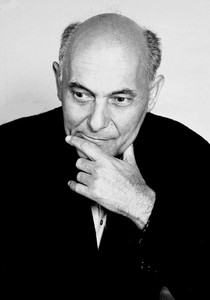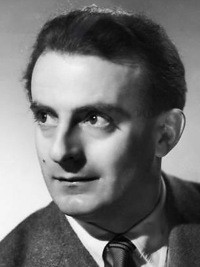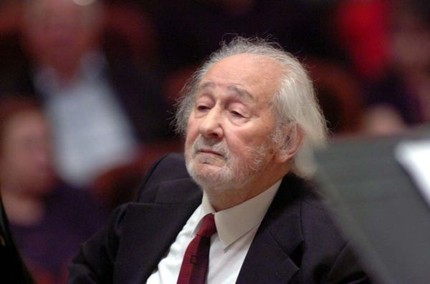
George Solti |
Georg solti

Which of the modern conductors is the owner of the largest number of prizes and awards for recording on records? Although no such count has, of course, ever been made, some critics rightly believe that the current director and chief conductor of London’s Covent Garden Theatre, Georg (George) Solti, would have been a champion in this field. Almost every year, various international organizations, societies, firms and magazines honor the conductor with the highest honors. He is the winner of the Edison Prize awarded in the Netherlands, the American Critics Prize, the French Charles Cross Prize for the recording of Mahler’s Second Symphonies (1967); his records of Wagner operas received the Grand Prix of the French Record Academy four times: Rhine Gold (1959), Tristan und Isolde (1962), Siegfried (1964), Valkyrie (1966); in 1963, his Salome was awarded the same award.
The secret of such success is not only that Solti records a lot, and often with such soloists as B. Nilsson, J. Sutherland, V. Windgassen, X. Hotter and other world-class artists. The main reason is the artist’s store of talent, which makes his recordings especially perfect. As one critic noted, Solti writes by “overdoing his tasks by two hundred percent to get the necessary hundred as a result.” He likes to repeat individual fragments over and over again, achieving relief for each theme, elasticity and colorfulness of sound, rhythmic accuracy; he likes to work with scissors and glue on tape, considering this part of his work also a creative process and achieving that the listener receives a record where no “seams” are visible. The orchestra in the recording process appears to the conductor as one complex instrument that allows him to achieve the implementation of all his ideas.
The latter, however, also applies to the daily work of the artist, whose main field of activity is the opera house.
The greatest strength of Solti is the work of Wagner, R. Strauss, Mahler and contemporary authors. However, this does not mean that the world of other moods, other sound images is also alien to the conductor. He proved his versatility over the years of quite a long creative activity.
Solti was brought up in his native city of Budapest, graduating here in 1930 from the Academy of Music in grade 3. Kodai as a composer and E. Donany as a pianist. Having received his diploma at the age of eighteen, he then went to work at the Budapest Opera House and took the place of conductor there in 1933. International fame came to the artist after meeting with Toscanini. It happened in Salzburg, where Solti, as an assistant conductor, somehow had a chance to conduct a rehearsal of the Marriage of Figaro. By chance, Toscanini was in the stalls, who carefully listened to the entire rehearsal. When Solti finished, there was deathly silence, in which only one word uttered by the maestro was heard: “Bene!” – “Good!”. Soon everyone knew about it, and a bright future opened up before the young conductor. But the coming to power of the Nazis forced Solti to emigrate to Switzerland. For a long time he did not have the opportunity to conduct and decided to perform as a pianist. And then success came very quickly: in 1942 he won first prize at a competition in Geneva, began to give concerts. In 1944, at the invitation of Ansermet, he held several concerts with the Swiss Radio Orchestra, and after the war he returned to conducting.
In 1947, Solti became head of the Munich Opera House, in 1952 he became chief conductor in Frankfurt am Main. Since then, Solti has been touring in many European countries and has performed regularly in the US since 1953; however, despite the lucrative offers, he categorically refuses to move overseas. Since 1961, Solti has been at the head of one of the best theaters in Europe – London’s Covent Garden, where he has staged a number of brilliant productions. Energy, fanatical love for music brought Solti worldwide recognition: he is especially loved in England, where he received the nickname “the super-wizard of the conductor’s baton.”
L. Grigoriev, J. Platek, 1969





